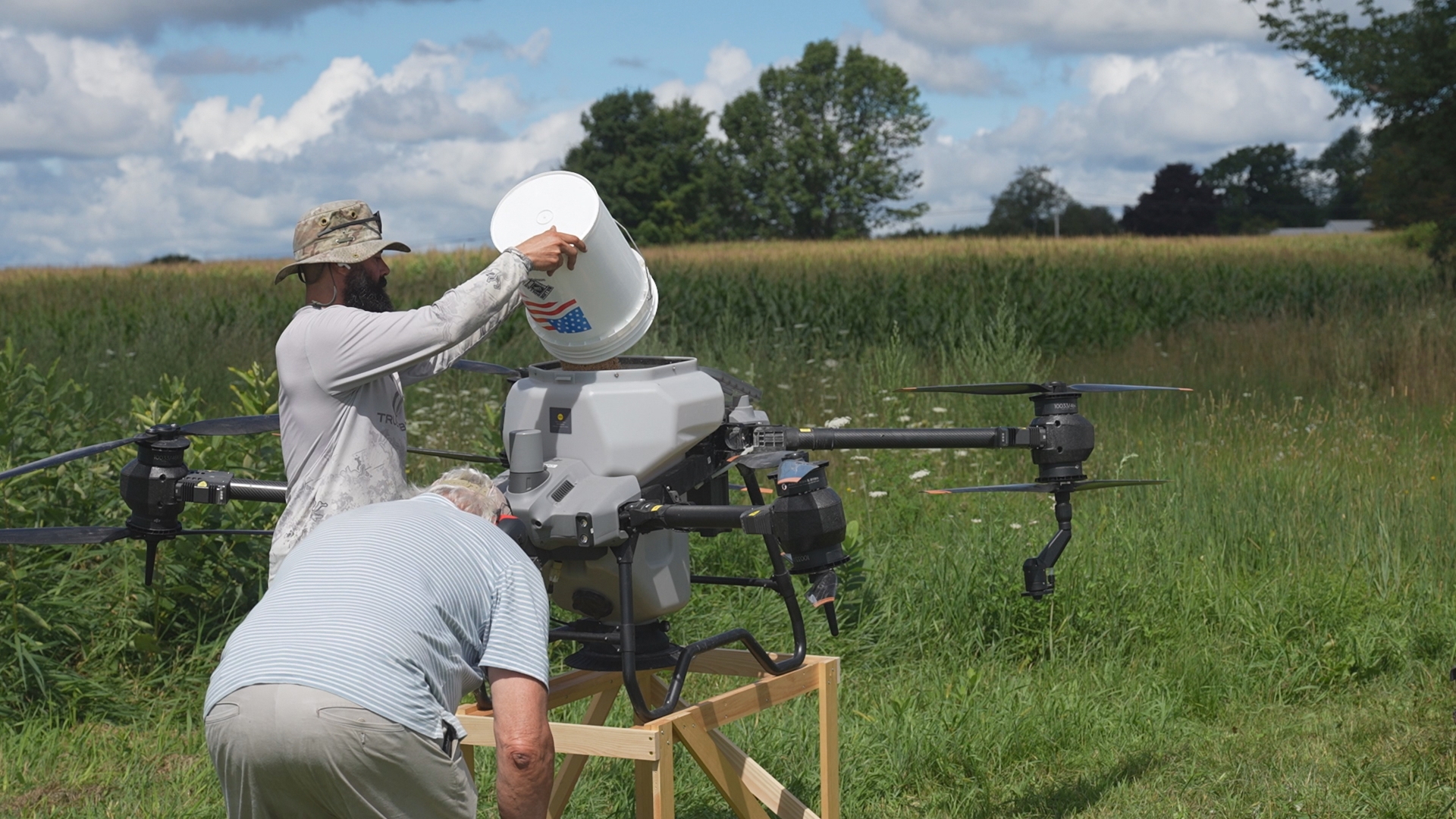KNOX, Maine — These days, things are looking downright sci-fi in some Maine fields.
We met Tom Massey on an August morning at a corn field in Knox. He smiled as he poured winter rye seed into the hopper of that largest drone I had ever seen. The DJI Agras T40, an agricultural drone, had a footprint as big as a four-wheeler. When it started up its rotors and lifted off, it felt like I was standing under a full-fledged helicopter.
"When we roll up with the drone, everyone's pretty excited," Massey said. "You feel like a kid again."
The Rockland resident and his dad, Tim, founded the business Active Intelligence Drone Services about four years ago. Each drone can spread its 10-gallon payload in as few as five minutes, draining its battery nearly as fast, so Tom and Tim were constantly refilling buckets and plugging laptop-sized batteries into the machines.
As long as the team works efficiently, it's a promising frontier. The keyword being "frontier," because Massey, for the time being, seems to be the only game in town.
Dr. Lily Calderwood, a wild blueberry specialist at the University of Maine Cooperative Extension, said Massey used to be the only such agriculture drone pilot in the Northeast and still claims Maine.
"There's only one licensed agricultural drone pilot in Maine, and that's Tom," Calderwood said plainly.
The professor was in the middle of several research projects with Massey, studying what he and pilots who come after him can offer farmers.
"The benefits are really that it decreases the human contact with pesticides, which is great. So, for human health, that's a big deal. It also can reduce the area that you apply the pesticide to," she said.
"The ability of these drones—the flight and the contactless farming for routine spraying, spreading, and seeding—is revolutionary," Massey said, back at the farm. "We're really excited to be the guys who are on the cutting edge of that here in Maine and the Northeast."
Greg Ingraham is a fourth-generation farmer at Gold Top Farm, where we met Massey. Ingraham hired the pilot for the second year in a row, because the drone can get places his tractors sometimes just can't.
"Last year, it was so wet, so it was an advantage for us," Ingraham said. "We took advantage of it because we wouldn't have gotten there until November, and it wouldn't have seeded down."
There is still much to learn about this technology, including how it might impact farm employees, negatively or positively. But the concept is no longer science fiction in Maine.

